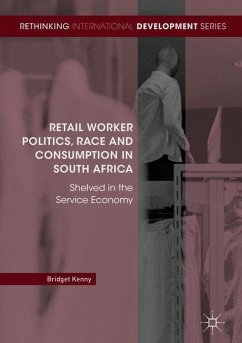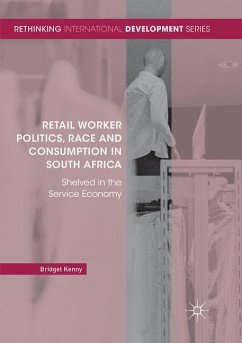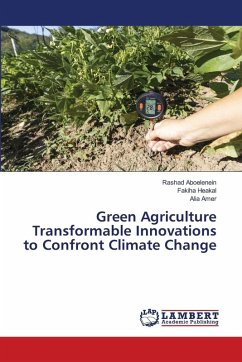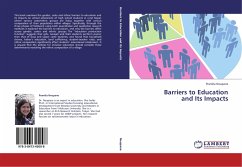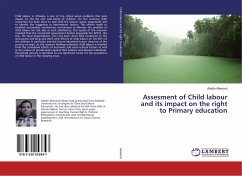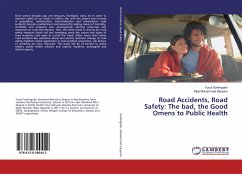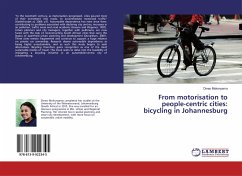
From motorisation to people-centric cities: bicycling in Johannesburg
Versandkostenfrei!
Versandfertig in 6-10 Tagen
36,99 €
inkl. MwSt.

PAYBACK Punkte
18 °P sammeln!
"In the twentieth century, as motorisation progressed, cities poured most of their investment into roads, to accommodate motorised traffic" (Godefrooijet al, 2009, p7). Automobile dependence has risen since then; contributing to problems associated with declining city centres, increases in air pollution, traffic noise and road accidents (Greene and Wegener, 1997). Urban planners and city managers, together with politicians, are now faced with the task of reconstructing South African cities that carry the legacy of apartheid urban planning and development (Donaldson, 2001). These cities remain ...
"In the twentieth century, as motorisation progressed, cities poured most of their investment into roads, to accommodate motorised traffic" (Godefrooijet al, 2009, p7). Automobile dependence has risen since then; contributing to problems associated with declining city centres, increases in air pollution, traffic noise and road accidents (Greene and Wegener, 1997). Urban planners and city managers, together with politicians, are now faced with the task of reconstructing South African cities that carry the legacy of apartheid urban planning and development (Donaldson, 2001). These cities remain fragmented and continue to support a huge reliance on private car ownership. Research deems automobile dependence as being highly unsustainable, and as such this study begins to seek alternatives. Bicycling therefore gains recognition as one of the most sustainable modes of travel. This book seeks to delve into the feasibility of instigating a bicycling initiative in an automobile-centric city of Johannesburg.




